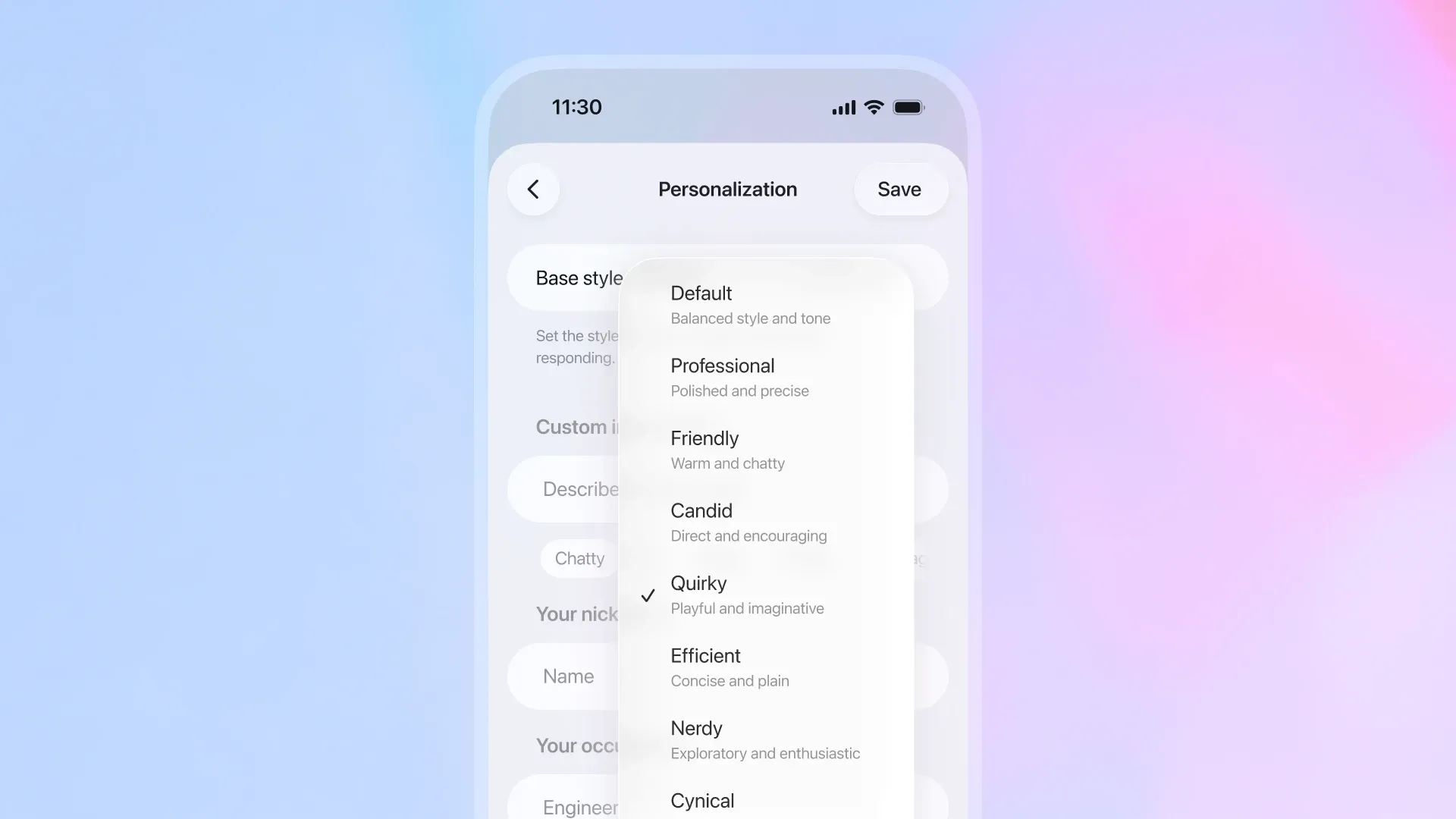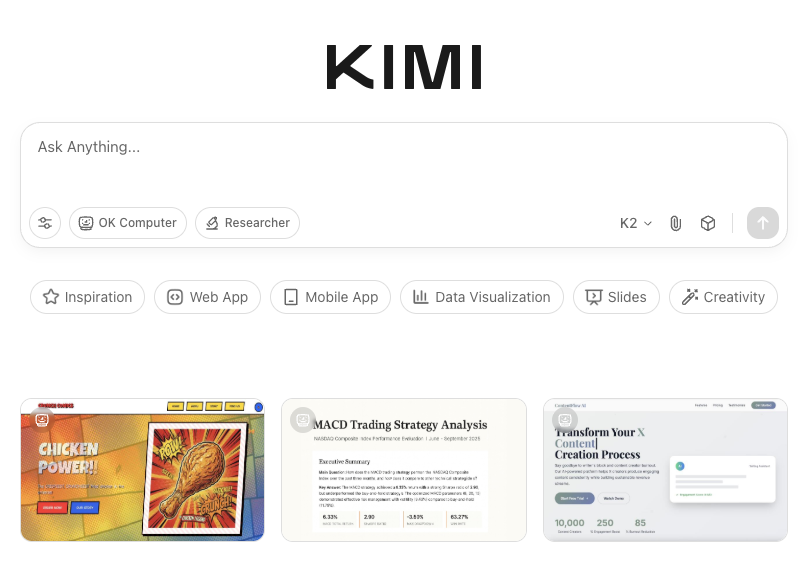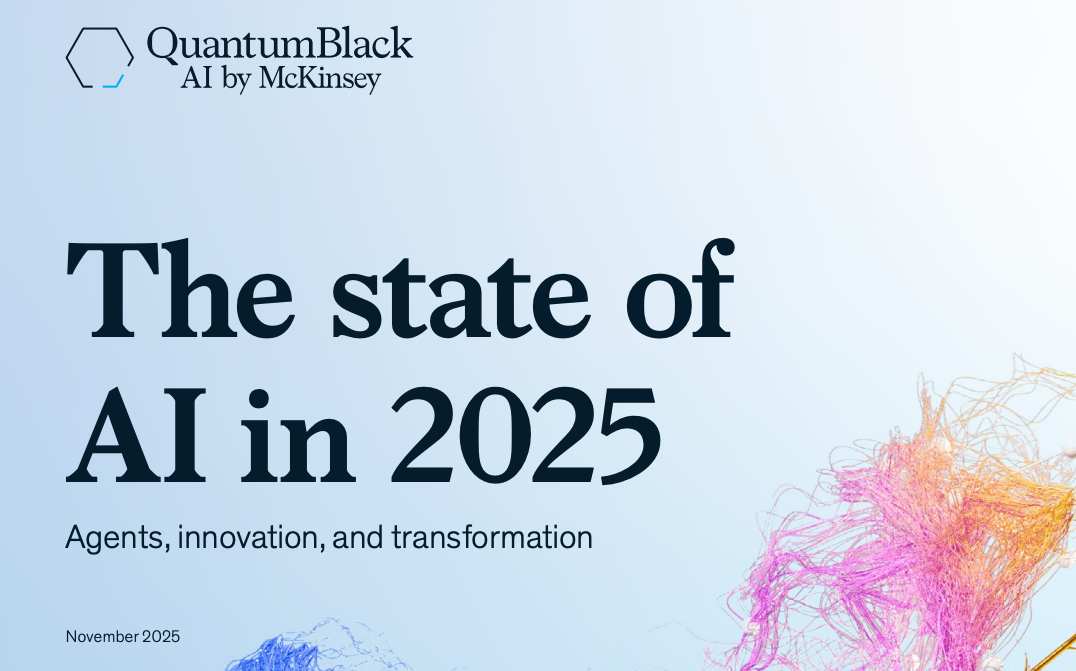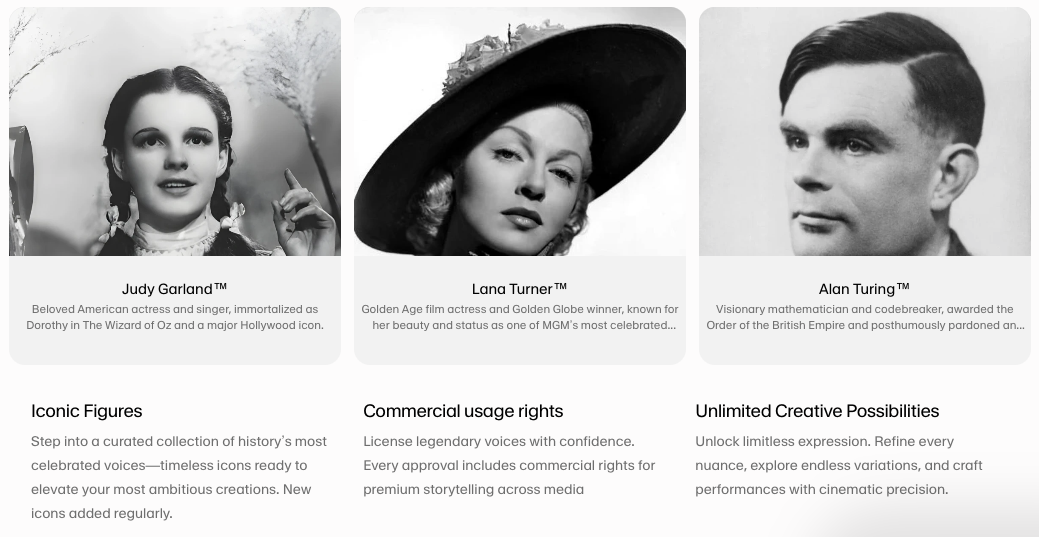5 Things You Should Know in AI This Week — November 14, 2025
Simplifying the noise. Here are five signals that matter for non-technical workers.

1. OpenAI Quietly Releases GPT-5.1 + Personality Options
ChatGPT got a new default model this week: GPT-5.1.
No big launch event or flashy benchmarks.

Just blog and social posts, then set live.
The update includes two model variants similar to GPT-5:
- Instant (faster, warmer + more conversational by default)
- Thinking (deeper reasoning, smarter when to slow down or think quick)
The other update? They refined ChatGPT's personality customization options.
Choose from these updated personalities in Settings: Default, Professional, Friendly, Candid, Quirky, Efficient, Nerdy, or Cynical.
There are also experimental settings for emoji use, warmth level, and response length rolling out to some users.
OpenAI will sunset the previous GPT-5 model in three months.
The signal? The launch feels rushed.
OpenAI skipped the usual hype and media cycle.
Google's Gemini 3 model is expected any day so this could be OpenAI trying to stay ahead.
The personality options signal something too: with 800 million users, one-size-fits-all is dead.
Early reaction is split.
Some users love the warmer tone "finally feels less like a PDF."
Others want the old straightforward style back. Once again, Reddit shows paid users threatening to cancel over losing model control.
If you've built workflows or established prompts with GPT-5, test them with 5.1. Model switches tweak how prompts get interpreted and responded to.
For personality settings?
I recommend trying "efficient" for heads-down work, the warmer defaults might slow you down.
2. New Chinese Model Kimi K2 Beats Top US Models on Benchmarks
Moonshot AI released Kimi K2 this week.
The model outperformed GPT-5 and Claude Sonnet 4.5 on several benchmarks.

Beyond benchmarks, Kimi K2 cost under $5M to train.
That's nothing compared to estimated costs of $100M+ for ChatGPT, Claude, and Gemini's models.
Kimi K2 is getting praise for its writing ability.
Users say it sounds more human and less "AI-like" than other models.
It's been especially good at emails, summaries, and explanations.
Plus the model is open-source, meaning anyone can download, use, and fine-tune it for free.
The trade off? It's slow.
And speed concerns are an issue, especially for automated workflows.
The signal? Powerful AI models are getting cheaper to build and more accessible.
You don't need billions in infrastructure to compete anymore.
China's AI capabilities are competitive.
Models like Kimi, DeepSeek, and others consistently perform well and often get released as open-source.
For most corporate users, this doesn't change your day-to-day since you're probably using ChatGPT, Claude, or Gemini through approved tools.
But it's worth knowing alternatives exist and some are getting praised for capabilities the big three struggle with.
If you're building writing automations or testing workflows, Kimi might be worth exploring.
Just remember the usual compliance concerns about data sharing.
This is a reminder that the AI landscape is broader than the big three.
Competition is keeping everyone sharp.
3. McKinsey Report: 88% Use AI, Only 6% See Significant ROI
McKinsey published its annual State of AI report this week.
They surveyed 1,993 companies across 105 countries.

The headline finding? 88% of companies use AI in at least one business function.
But only 6% are seeing significant impact (defined as 5%+ EBIT improvement).
Most companies are still stuck experimenting.
Here's what separates the winners:
- Top performers redesign workflows. Not layering onto old workflows.
- Senior leadership buys in. Orgs with exec-level AI ownership are 3x more likely to succeed.
- AI agents are still early. 23% are scaling agents in production, 39% are still testing. The rest haven't started.
- Structured processes matter. Companies scaling AI have established governance, validation systems, and data quality processes.
The signal? Change takes time.
Most companies are still figuring out how to use AI.
It's sold as plug-and-play, but strategic implementation is more complex.
The stats aren't a signal to slow down. They're a reality check.
If you're experimenting with AI, keep going.
Don't get overconfident or underconfident.
Stay the course.
Learn, iterate, and align AI experiments with your company's bigger goals.
4. ElevenLabs Launches Marketplace for Licensed Celebrity AI Voices
The AI audio leader launched the "Iconic Voice Marketplace" this week.
A platform where brands can license AI voices of celebrities and historical figures legally.

The current lineup includes 25+ voices: Maya Angelou, Babe Ruth, Judy Garland, Michael Caine, Mark Twain, Liza Minnelli, and more.
Each voice comes with commercial usage rights across media types.
This means brands can use them in ads, content, voiceovers, customer service bots, etc. without risk.
The signal? This could set a precedent for how licensing works in the AI age.
Instead of unauthorized AI clones, this is an approved, compensated path for use.
For brands, this is important. You can use recognizable, high-quality voices without the legal gray area.
If AI-generated celebrity voices become routine, the novelty wears off.
But for now, Maya Angelou's voice is distinctive and legally cleared for ads.
This could be the start of similar marketplaces for other creative work like video, imagery, and even written content.
If voice licensing becomes the norm, other forms of IP could follow the same model.
For most readers, this is a "watch this space" story.
It's a blueprint for a potential path forward as AI blurs the line between human and synthetic content.
5. Numbers Worth Knowing This Week
Two stats that tell you where things are headed:
- Google AI Overviews trigger based on query length. Single-word searches activate AI Overviews only 9.5% of the time. Searches with 7+ words trigger them 46.4% of the time. The signal? User behavior is shifting. Want an AI response? Use more words in your search.
- Lovable exploded from 2.3M to 8M users in four months. The AI app and website building platform now sees 100,000 new products built daily. The signal? Vibe coding is taking off. The more people use AI tools, the more they uncover what it can do outside the chat window.







